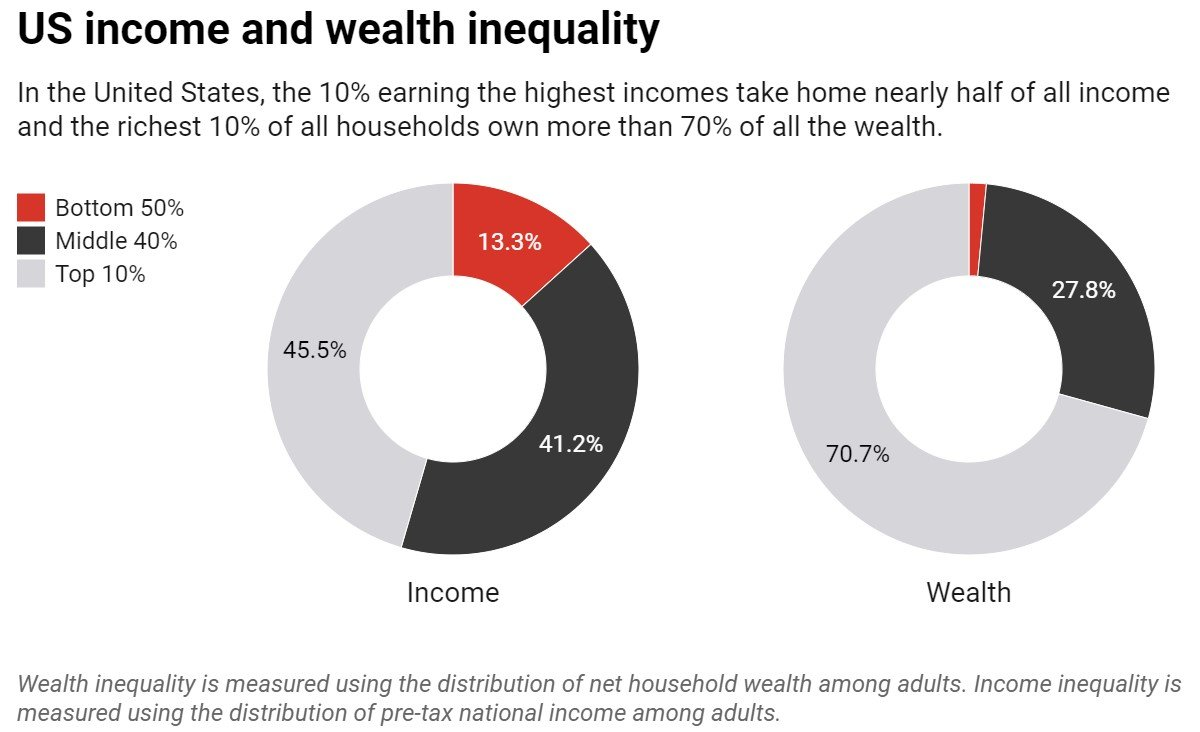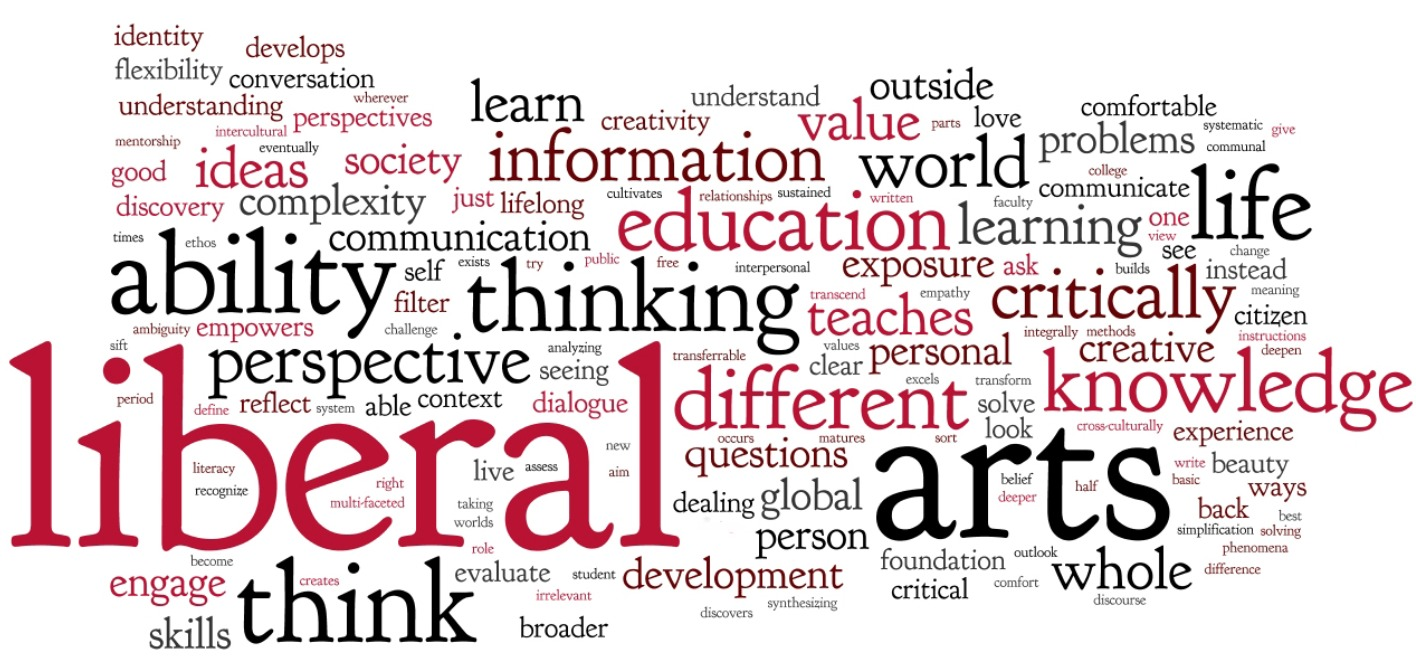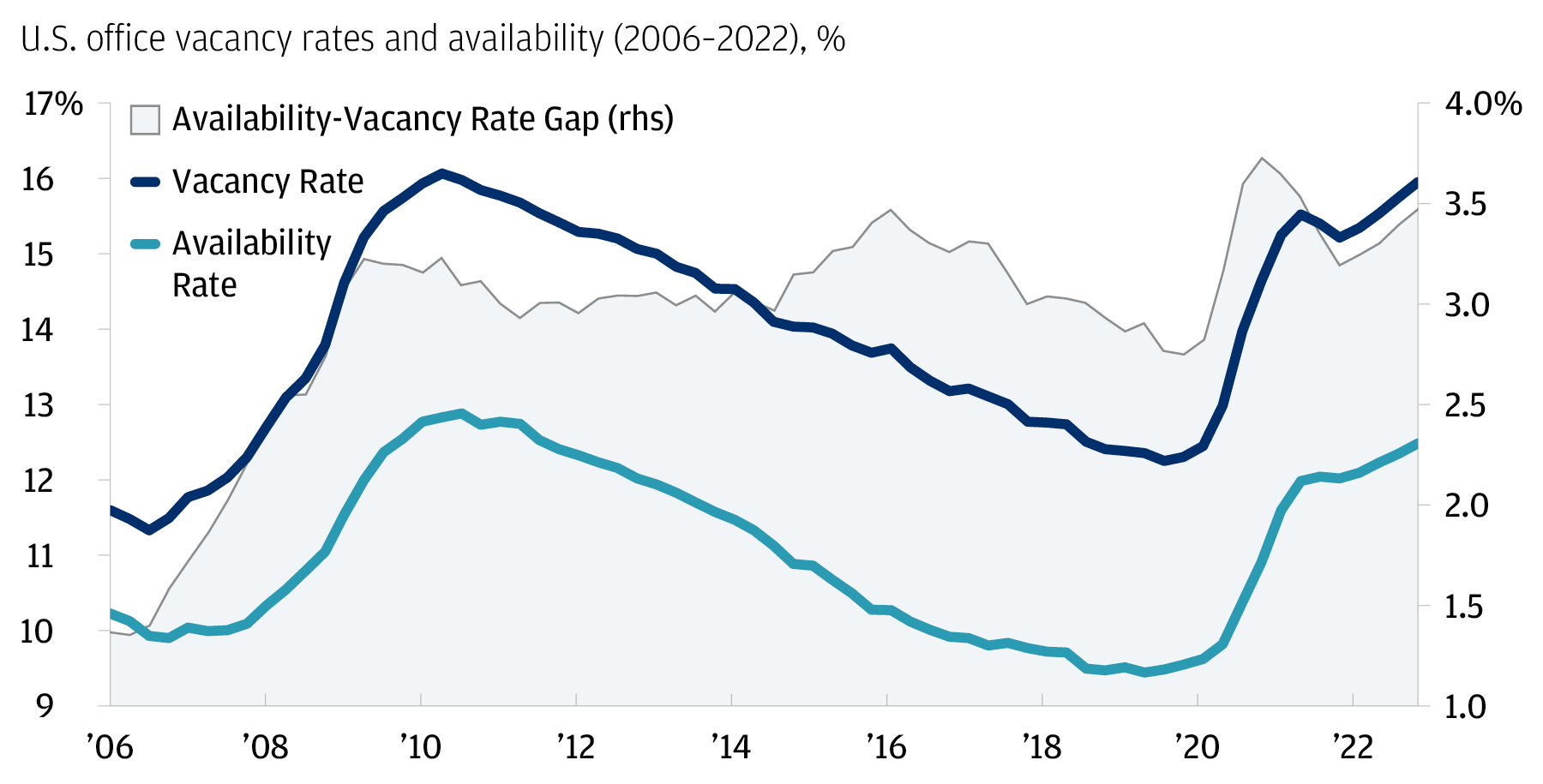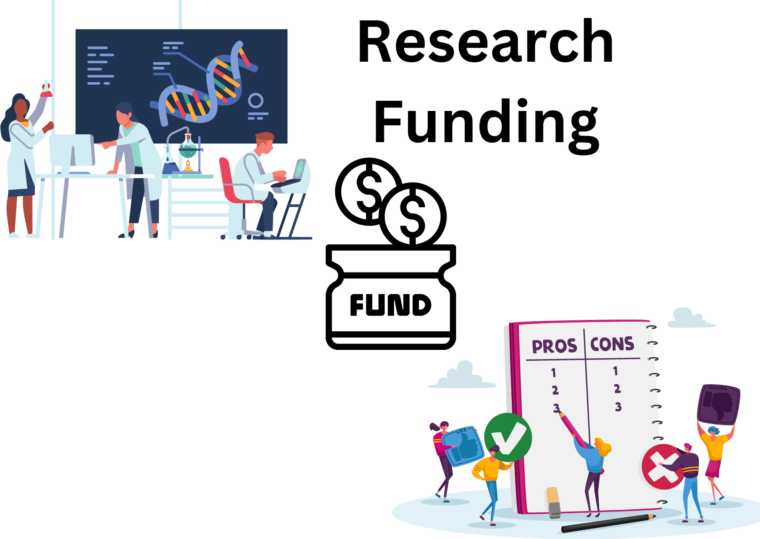Extreme wealth and income inequality have become defining features of contemporary society, stirring heated debates across the globe. The stark contrast between billionaires and the burgeoning numbers of impoverished individuals raises essential questions about wealth redistribution and the ethical implications of such disparities. While some suggest that the philanthropic efforts of the ultra-rich have a significant positive impact, critics argue that the immense fortunes held by a few lead to systemic issues, including environmental degradation and social injustice. Finding effective income inequality solutions is more vital than ever, as the influence of billionaires continues to shape political and economic landscapes. The pressing need for ethical wealth distribution and thoughtful philanthropy in society cannot be overstated if we aim to create a more equitable future.
The discussion surrounding wealth disparity and the ultra-affluent has garnered increasing attention, especially as society grapples with the consequences of economic stratification. The presence of affluent individuals who accumulate vast resources poses critical questions about fairness and social responsibility. Concepts like wealth reallocation, effective strategies to combat monetary inequality, and the role of philanthropic initiatives in fostering equity are at the forefront of this conversation. As we consider alternative approaches to balancing societal wealth, it becomes apparent that solutions must not only address immediate needs but also empower communities in sustainable ways. Engaging in thoughtful dialogue about the impact of wealth accumulation on society is crucial as we seek paths toward a more just and inclusive economy.
The Impact of Extreme Wealth on Income Inequality
Extreme wealth concentration has profound implications for income inequality, challenging the societal fabric that binds communities together. As wealth becomes increasingly centralized among billionaires, the disparities between the rich and the poor starkly widen, leading to a societal divide that affects access to essential services like healthcare, education, and basic living conditions. The statistics reveal that the top 1% not only hoards wealth but also exerts undue influence over policy-making, which perpetuates a cycle of inequality. These issues emphasize the urgent need for wealth redistribution mechanisms that could bridge the gap and promote a more equitable society.
Moreover, the environmental ramifications of extreme wealth cannot be ignored. Wealthy individuals and corporations often contribute to higher carbon emissions through their lavish lifestyles. This imbalance exacerbates climate change effects, disproportionately impacting lower-income communities who lack the resources to adapt. Addressing extreme wealth and income inequality requires systemic change, including policies focused on ethical wealth distribution that prioritize environmental sustainability alongside economic fairness.
Wealth Redistribution: Addressing Income Inequality Solutions
Wealth redistribution is a critical solution to address the widening gap in income inequality. Advocates argue that transferring wealth from the richest segments of society to the lower and middle classes can enhance economic stability and promote social welfare. This can take various forms, including progressive taxation, where higher earners contribute proportionally more, or universal basic income initiatives that provide financial support to those in need. Implementing such strategies not only alleviates poverty but also stimulates economic growth by increasing the purchasing power of the broader population.
In addition, community empowerment through wealth redistribution can lead to the development of localized economies that prioritize sustainability and ethical practices. For instance, reinvesting wealth into community projects, education, and healthcare can create a more balanced economy that empowers citizens and fosters resilience against economic shocks. The success of these initiatives relies heavily on political will and public support for policies that challenge the status quo, emphasizing that income inequality solutions must be multi-faceted and inclusive.
Philanthropy: A Double-Edged Sword in Addressing Inequality
Philanthropy has emerged as a contentious topic when discussing the role of the extremely wealthy in addressing societal issues. While high-profile billionaires often donate vast sums to charitable causes, critics argue that philanthropy can sometimes perpetuate existing power dynamics and inequalities. Many of these philanthropic efforts are predicated on the preferences of the wealthy, rather than effectively addressing the root causes of systemic issues such as poverty and education disparities. This raises ethical questions about the motives behind charitable giving and whether such actions can genuinely create sustainable change.
However, proponents of philanthropy assert that it can be a lifeline for struggling communities, providing immediate relief and funding for innovative solutions. Notable examples include initiatives aimed at public health, technology access, and education reform, where billionaire-backed foundations can mobilize resources rapidly. The challenge lies in ensuring that philanthropic efforts are paired with systemic reforms aimed at constructive wealth redistribution. For true progress to occur, philanthropy must align with public policies that foster ethical wealth distribution and work towards dismantling the structures that create income inequality.
The Role of Billionaires in Society: Benefactors or Burden?
The presence of billionaires in society raises significant questions about their role as either benefactors or burdens. On one hand, billionaires often play an essential role in funding projects that contribute to public welfare, including advancements in technology, healthcare, and education. Their investments can help catalyze change, particularly in areas that experience neglect from governmental bodies. The narrative that billionaires are altruistic changemakers is widely circulated, fueled by their charitable endeavors and public visibility.
On the flip side, the concentration of wealth in the hands of a few raises concerns about the corresponding power these individuals wield over political and economic systems. Critics argue that billionaires can distort priorities and undermine democracy, prioritizing their interests over the needs of the public. This duality presents an ethical dilemma: Are billionaires a resource for societal progress, or do they exacerbate existing inequalities? Evaluating the net impact of billionaires on society necessitates a balanced analysis of their financial contributions versus the societal costs of extreme wealth accumulation.
Ethical Wealth Distribution: Striving for Fairness
Ethical wealth distribution proposes a framework for addressing the inequities bred by extreme wealth concentration. This concept seeks to establish standards for wealth accumulation that prioritize fairness and equity. By advocating for policies that ensure the wealth generated by individuals and corporations benefits society at large, ethical wealth distribution strives to promote social justice. This involves considering how wealth is created and the economic activities that contribute to it, thereby fostering environments where everyone, regardless of background, has the opportunity to thrive.
In addition, ethical wealth distribution entails creating systems of accountability for wealthy individuals and corporations, compelling them to act in the broader interest of society. This can include policies like responsible corporate governance, where companies are incentivized to operate sustainably and contribute to community welfare. By aligning corporate success with societal benefits, ethical wealth distribution supports the idea that true prosperity can only be achieved when the wealth generated serves the common good, helping to mitigate income inequality practically.
Public Opinion on Wealth Redistribution and Philanthropy
Public opinion plays a crucial role in shaping the discourse surrounding wealth redistribution and philanthropy. Many individuals express concerns about the concentration of wealth and its implications for democracy, advocating for stronger measures to redistribute wealth and address income inequality. Surveys often reveal that a significant portion of the population supports higher taxes on billionaires and the implementation of universal basic income as a means to leveling the economic playing field. Such sentiments reflect a growing desire for a more equitable society where opportunities are accessible to all.
Conversely, there remains a faction that defends the rights of the wealthy to manage their fortunes as they see fit. This group often argues that philanthropy serves as a more flexible and immediate solution to societal challenges than government intervention. They contend that many wealthy individuals approach philanthropy with the intent to address pressing social issues innovatively and efficiently. The tension between public support for wealth redistribution and respect for individual contributions to charity highlights the complexities of these debates, underscoring the need for ongoing dialogue about the role of wealth in society.
Innovative Solutions for Curbing Income Inequality
As income inequality reaches historically high levels, innovative solutions are becoming increasingly necessary to address the systemic issues at play. Ideas such as implementing a wealth tax have gained traction, proposing that individuals with substantial wealth contribute a fair share to public resources. This strategy aims to alleviate poverty and fund essential services, creating a more equitable society. Furthermore, fostering inclusive economic growth through entrepreneurship and education can empower marginalized communities, providing them with the tools and resources needed to break free from the cycle of poverty.
Moreover, collaborative community programs that involve public-private partnerships can serve as effective platforms for curbing income inequality. These initiatives can focus on job creation, training programs, and sustainable practices that directly benefit low-income populations. By leveraging the expertise and resources of both businesses and the government, these programs can create a win-win scenario that fosters economic growth while simultaneously addressing the needs of the disadvantaged. Ultimately, innovative solutions must prioritize equity and sustainability, ensuring a brighter future for all.
The Global Perspective on Wealth Inequality and Distribution
Examining wealth inequality from a global perspective reveals that this issue transcends national borders. In many developing countries, wealth is often concentrated in the hands of a small elite, leading to stark disparities in living conditions and access to resources. Globalization has exacerbated these inequalities, as capital flows towards wealthier nations, leaving poorer countries struggling to achieve economic stability. Recognizing this, there is a growing call for international cooperation to implement fair wealth distribution practices that can uplift disadvantaged populations worldwide.
Moreover, addressing global wealth inequality requires a commitment to ethical practices that prioritize human rights and environmental sustainability. Initiatives such as fair trade, responsible sourcing, and ethical investment can play pivotal roles in reshaping the global economy. By ensuring that wealth accumulation does not come at the expense of the vulnerable or the planet, countries can work towards creating an equitable global landscape. The collaboration between nations, multilateral organizations, and civil societies is essential to drive meaningful change and promote social responsibility on a global scale.
Future Directions for Policy and Wealth Management
As discussions about wealth inequality continue to dominate social policy debates, future directions for policy and wealth management must consider innovative and inclusive approaches. Policymakers need to critically assess current economic structures and how they perpetuate disparities among different social classes. The integration of wealth management strategies that prioritize equitable growth and ethical considerations can steer economies towards a more just framework. This can include enhanced regulatory measures that oversee wealth accumulation processes and encourage fair distribution mechanisms.
Additionally, public engagement around wealth management strategies is crucial for ensuring that policies reflect the needs and desires of various segments of society. Raising awareness and facilitating dialogue about the importance of income inequality solutions can empower citizens to advocate for changes that benefit the community as a whole. Engaging stakeholders from differing backgrounds will enrich discussions about future directions, pushing for a paradigm shift that values equity and inclusiveness. Through thoughtful policymaking and public participation, societies can forge paths toward a more equitable and prosperous future.
Frequently Asked Questions
What is extreme wealth and income inequality, and why is it a concern?
Extreme wealth and income inequality refer to the significant disparity in wealth distribution, where a small percentage of the population controls a large portion of resources, leaving the majority with comparatively little. This is a concern because it leads to social unrest, limits economic mobility, and exacerbates poverty, as the wealthiest individuals often fail to invest equitably in societal welfare.
How does wealth redistribution relate to extreme wealth and income inequality?
Wealth redistribution involves reallocating resources from the wealthy to lower-income populations in an effort to mitigate extreme wealth and income inequality. This can be achieved through progressive taxation, social welfare programs, and investments in public services, ultimately fostering a more equitable society and enhancing economic stability.
What are some effective income inequality solutions that can address extreme wealth disparities?
Effective income inequality solutions include implementing higher taxes on the ultra-rich, increasing minimum wage, enhancing access to education and healthcare, and promoting affordable housing. These measures aim to create a more balanced economic environment where wealth is more evenly distributed, combating the negative impacts of extreme wealth.
What is the impact of billionaires on society and income inequality?
While billionaires can contribute to economic growth and innovation, their excessive wealth often perpetuates income inequality. The concentration of wealth can lead to disproportionate political influence and hinder government responsiveness to societal needs, creating a cycle of privilege that excludes lower-income populations.
How does philanthropy intersect with issues of extreme wealth and income inequality?
Philanthropy can play a dual role in addressing extreme wealth and income inequality by funding educational programs, healthcare, and social initiatives. However, it can also be criticized for allowing billionaires to wield undue influence over public priorities, raising ethical questions about whether philanthropic efforts can genuinely alleviate systemic inequality without addressing the root causes.
What ethical considerations surround wealth distribution in the context of extreme inequality?
The ethical considerations surrounding wealth distribution in the context of extreme inequality focus on fairness, justice, and the moral obligation of the wealthy to contribute to societal well-being. Discussions often involve the balance between the freedom to accumulate wealth and the responsibility to ensure that all individuals have access to basic needs and opportunities.
Can income inequality solutions be politically viable in today’s economic climate?
Political viability of income inequality solutions can be challenging in today’s economic climate, as they often require public support and willingness from policymakers to implement changes. However, increasing awareness of the issues surrounding extreme wealth and the demand for equitable policies may pave the way for more significant reforms in the future.
What role does Democratic Socialism play in addressing extreme wealth and income inequality?
Democratic Socialism advocates for government intervention in the economy to promote social welfare, reduce income inequality, and provide public services. This approach may involve reforms to labor laws, wealth redistribution through taxation, and investments in social programs, all aimed at ensuring a fair distribution of resources and curbing extreme wealth accumulation.
How does the concept of a property-owning democracy relate to wealth inequality?
A property-owning democracy posits that individuals should have equitable ownership of resources, enabling them to participate in the economy. This concept relates to wealth inequality by advocating for policies that broaden property access and diminish extreme wealth concentration, thus fostering a more inclusive society and mitigating the effects of income disparity.
| Key Concepts | Arguments For Extreme Wealth | Arguments Against Extreme Wealth |
|---|---|---|
| Extreme Wealth and Income Inequality | Billionaires contribute to anti-poverty initiatives and green reforms (e.g., Bill Gates in poor countries). | Top 1% consume resources equivalent to the carbon footprint of 5 billion people. |
| Impact of Philanthropy | Market incentives push billionaires to create jobs and improve infrastructure for clean energy. | Billionaires may prioritize investments that don’t necessarily meet the needs of the poorest effectively. |
| Concept of Meritocracy | Meritocracy could promote innovation and investment needed for market growth. | Meritocracy often rewards arbitrary factors like luck and ability rather than hard work or labor rights. |
| Market Economy Benefits | Market-based societies can improve conditions for the poorest by generating wealth. | Corporate practices (e.g., Walmart’s treatment of employees) can undermine that benefit. |
| Alternative Solutions | Proposals like property-owning democracy emphasize wealth distribution while maintaining private capital. | Advocacy for democratic socialism includes ensuring fair labor practices and conditions. |
Summary
Extreme wealth and income inequality represent pressing global challenges that elicit divided opinions regarding their impacts on society. While proponents argue that billionaires contribute positively through philanthropy and wealth generation, critics highlight the environmental and social harms caused by extreme wealth concentration. This discussion suggests a need to explore alternative economic systems that balance private capital and equitable wealth distribution, ensuring that the wealthiest individuals do not define the social fabric at the expense of broader societal welfare.



